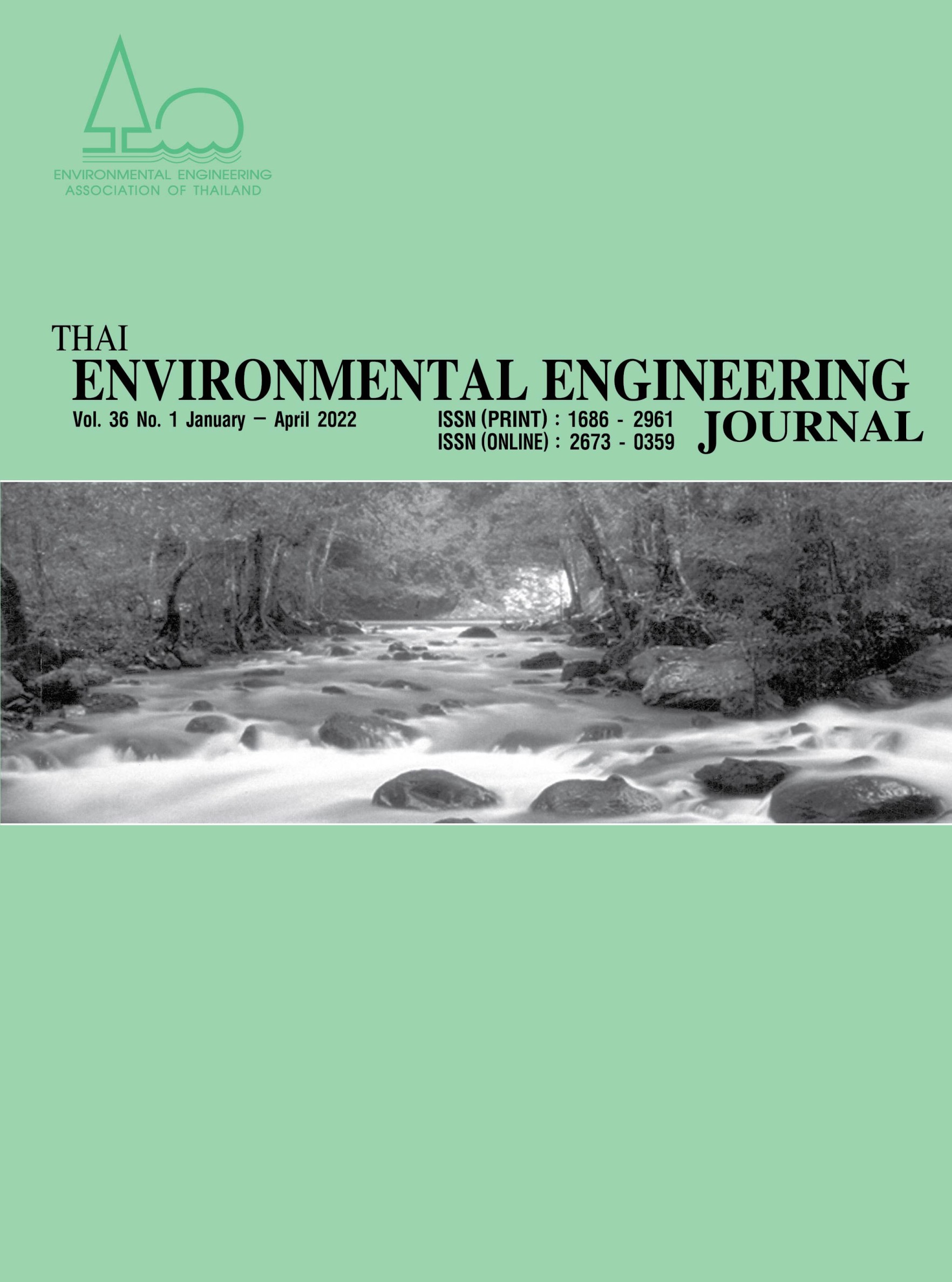Life Cycle Assessment of Southeast Asian Diets
Main Article Content
Abstract
Population growth has increased demand for food globally. Food production has negative impacts on the environment. Previous research has shown that dietary choices significantly influenced environmental impacts. Studies on the environmental impacts of Southeast Asian diets are still limited and needed. The objectives of this study are to assess and compare the life cycle environmental impacts of diets in 9 Southeast Asian countries (Cambodia, Indonesia, Laos, Malaysia, Myanmar, Philippines, Thailand, Timor-Leste, and Vietnam), to identify the dietary choices causing the environmental impacts and to provide recommendations on environmental impact reduction. The functional unit of this assessment is food consumption in kilograms per capita per year. The assessment scope is from cradle to gate. Foreground data were obtained from Food and Agriculture Organization (FAO) food balance sheets with the representative year as of 2018 and International Coffee Organization (ICO). Background data were obtained from ecoinvent and Agri-footprint databases. Four environmental impact categories (human health damage, ecosystem damage, resource scarcity, and global warming potential) were assessed using the ReCiPe 2016 method (v1.04). Healthy diet scenarios with the diet and energy intake adjustments to achieve the recommended standard healthy diets were also analyzed. The dietary choices with higher amount and more high-impact food groups would cause higher environmental impacts. Vietnam, Myanmar, and Laos had higher impacts for all impact categories, while Timor-Leste had the lowest impacts among Southeast Asian countries. Meats/meat products and cereals were significant contributors to all impact categories, followed by fish and seafood. Based on the healthy diet scenario analysis, overall reduction and meats & cereals reduction were recommended for environmental impact reduction because meats, fish and seafood, cereals were the major contributors to all impacts categories in Southeast Asia. As meats/meat products lead as a critical food group causing environmental impacts, it is recommended that governments should take specific measures to reduce the consumption of animals and animal products and to support meat substitutes (e.g., tofu, tempeh, beans, etc.).
Article Details
References
Tilman, D., & Clark, M. (2014). Global diets link environmental sustainability and human health. Nature, 515(7528), 518–522.
Marlow, H. J., Hayes, W. K., Soret, S., Carter, R. L., Schwab, E. R., & Sabaté, J. (2009). Diet and the environment: Does what you eat matter? American Journal of Clinical Nutrition, 89(5), 1699–1703.
Stehfest, E., Bouwman, L., Van Vuuren, D. P., Den Elzen, M. G. J., Eickhout, B., & Kabat, P. (2009). Climate benefits of changing diet. Climatic Change, 95(1–2), 83–102.
Li, L., Wu, W., Giller, P., O'Halloran, J., Liang, L., Peng, P., & Zhao, G. (2018). Life cycle assessment of a highly diverse vegetable multi-cropping system in Fengqiu County, China. Sustainability, 10(4), 983.
Ahmad, S., Wong, K. Y., & Ahmad, R. (2019). Life cycle assessment for food production and manufacturing: Recent trends, global applications and future prospects. Procedia Manufacturing, 34, 49–57.
Lucas, E., Galán-Martín, Á., Pozo, C., Guo, M., & Guillén-Gosálbez, G. (2020). Global environmental and nutritional assessment of national food supply patterns: Insights from a data envelopment analysis approach. Science of the Total Environment, 755, 142826.
Adhikari, B., & Prapaspongsa, T. (2019). Environmental sustainability of food consumption in Asia. Sustainability, 11(20), 5749.
ISO. (2006). Environmental management — Life cycle assessment — Principles and framework. ISO 14040:2006. International Organization for Standardization (ISO), Geneva, Switzerland.
ICO, Internatinal Coffee Organizaiton. (n.d). Historical Data on the Global Coffee Trade. International Coffee Organization - Historical Data on the Global Coffee Trade (ico.org)
Worldometer. (n.d). Retrieved from: https://www.worldometers.info/geography/how-many-countries-in-asia/
World Bank, World Development Indicators. (2021). Population, total. Retrieved from https://databank.worldbank.org/source/world-development-indicators#
FAO. FAOSTAT. (2021). Food Balance (2014). Retrieved January 15, 2021, from: http://www.fao.org/faostat/en/#data/FBS
Huijibregts, M. A. J., Steinmann, Z. J. N., Elshout, P. M. F., Stam, G., Verones, F., Vieira, M. D. M., Hollander, A., Zijp, M., & Zelm, R. van. (2017). ReCiPe 2016 v1.1. RIVM Report 2016-0104, 201.
FAO, IFAD, UNICEF, WFP, & WHO. (2020). The State of Food Security and Nutrion in the World. In IEEE Journal of Selected Topics in Applied Earth Observations and Remote Sensing (Transformi). FAO.
Heller, M. C., Walchale, A., Heard, B. R., Hoey, L., Khoury, C. K., de Haan, S., Burra, D. D., Duong, T. T., Osiemo, J., Trinh, T. H., & Jones, A. D. (2020). Environmental analyses to inform transitions to sustainable diets in developing countries: case studies for Vietnam and Kenya. International Journal of Life Cycle Assessment, 25(7), 1183–1196.
Centers for Disease Control and Prevention. (2021). Drinking too much alcohol can harm your health. learn the facts. Centers for Disease Control and Prevention. Retrieved January 2, 2022, from https://www.cdc.gov/alcohol/fact-sheets/alcohol-use.htm
Kubala, J. (2018). 11 reasons why too much sugar is bad for you. Healthline. Retrieved January 2, 2022, from https://www.healthline.com/nutrition/too-much-sugar#TOC_TITLE_HDR_6
Levi, A. (2020). What Really Happens to Your Body When You Stop Eating Meat | Livestrong.com. [online] LIVESTRONG.COM. Retrieved February 4, 2022, from: https://www.livestrong.com/article/13723994-what-happens-when-you-stop-eating-meat/
McCarron, J., 2020. What Supplements Are Best for a No Meat Diet? | Livestrong.com. [online] LIVESTRONG.COM. Retrieved February 4, 2022, from: https://www.livestrong.com/article/262268-what-supplements-are-best-for-a-no-meat-diet/


